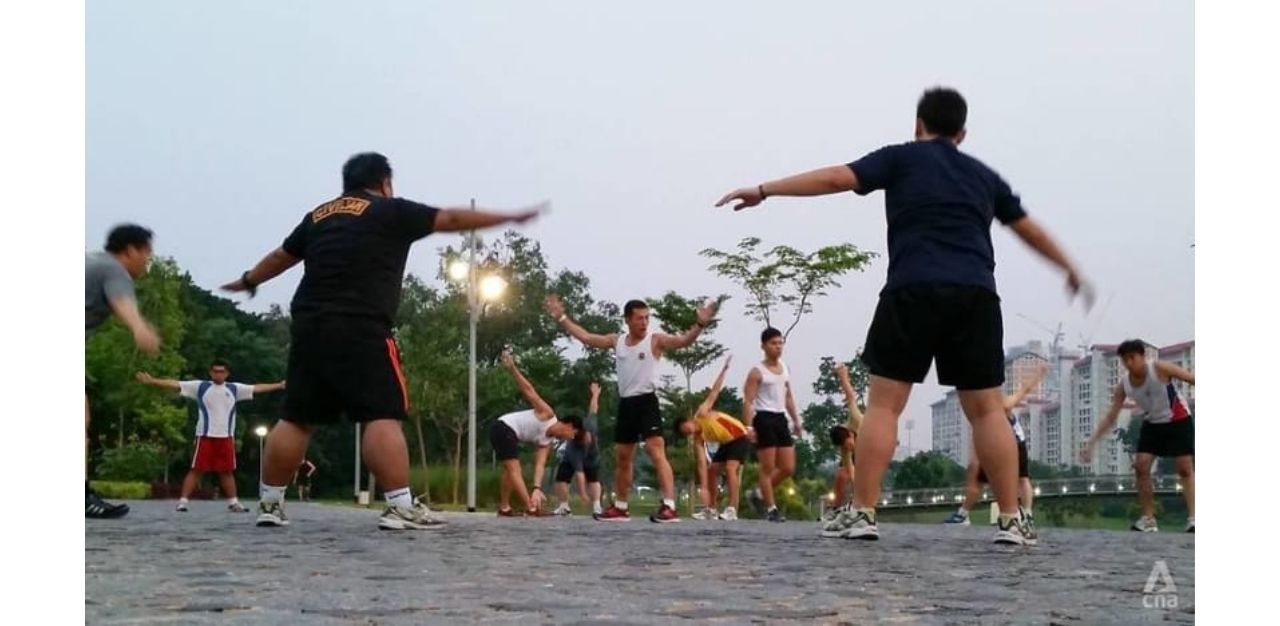High-Intensity Interval Training (HIIT) is a form of exercise that is currently in the grips of the fitness industry — so much so that even the Singapore Armed Forces (SAF) adopts it as a key part of its National Service Fitness Improvement Training (NS FIT) programme.
It is a cardio exercise done in short, intense bursts, and aims to maximise athletic performance under conditions where the muscles are deprived of oxygen. Studies have shown that this form of exercise, which involves putting the body under 85 per cent of the maximum heart rate for a concentrated period of 15 to 30 minutes, can burn more calories in less time than other types of workouts.
“HIIT training is quite popular nowadays and Covid–19 has made it even more popular,” says orthopaedic surgeon Tan Ken Jin. “Unlike traditional exercises, such as jogging or biking, it’s quite an intense form of exercise, and it is meant to be very efficient because the short bursts of energy build up your heart rate very quickly.”
This is also precisely why HIIT training comes with risks. While efficient, recent studies have shown that overdoing HIIT may undo any benefits and spell danger to the body one has started doing it for.
A 25-year-old National Service (NS) man died on Wednesday (2 March) after collapsing during a Health Promotion Board (HPB) quick HIIT session at West Coast Park. He was taking part in the session as part of the NS FIT programme.
“The Singapore Civil Defence Force (SCDF) was alerted to the incident at 7.41pm and arrived at the scene at 7.55pm. … The man was brought to the National University Hospital (NUH) where he was pronounced dead at 9.21pm,” a joint statement by MINDEF and HPB said.
The NS FIT programme is targeted at operationally-ready NS men who did not pass their Individual Physical Proficiency Test (IPPT), and would like to opt for additional training to boost their fitness levels.

But HIIT trainer of seven years Billy Aw warns that for people with pre–existing conditions to experience such intense workouts that involve such a tremendous increase in heart rate in such a short period of time, HIIT training can be potentially dangerous.
“HIIT must be taught by professionals with relevant experience and background. Options must be offered, so that regressions in the workout are available to cater to participants of all levels,” says Mr Aw.
People with pre-existing medical conditions should consult their doctors and health professionals before attempting a HIIT workout, he adds.
Weighing in, Dr Tan says that factors such as drinking alcohol, consuming caffeine, being less hydrated or working out on an empty stomach may all contribute to further elevated heart rates. More concerning are “the silent underlying cardiac issues, or when the participant is unknowingly carrying the Covid-19 virus — which affects cardiac fitness”, he adds.
In addition, Mr Aw adds that it is generally recommended that high-intensity exercises like HIIT training be conducted in cooler environments, “ideally indoors and air-conditioned”.
“When you do HIIT, there are two safety considerations — the heat from the surrounding environment, and the heat generated from your own body, because your heart is pumping so fast,” he says. “That’s why most gyms and classes are done indoors. It’s not just for hygiene, but also for safety — to help regulate body temperatures.”
The SAF announced in March 2021 that it is expanding the NS FIT programme to 42 sites, up from the 13 locations previously. Most of these sites are outdoors, including parks, sports centres, and town squares.

Since the death of the NS man, all HPB Quick HIIT sessions have been suspended until Sunday (6 March), while investigations are ongoing and safety practices are reviewed, MINDEF and HPB, through the joint statement, said.
“In all HPB physical activity programmes, on-site safety briefings and well-being checks are conducted prior to the commencement of each session,” they add.
TheHomeGround Asia has reached out to HPB, but it declined to comment further on the safety procedures and expertise of trainers at the accident.
Join the conversations on TheHomeGround Asia’s Facebook and Instagram, and get the latest updates via Telegram.














